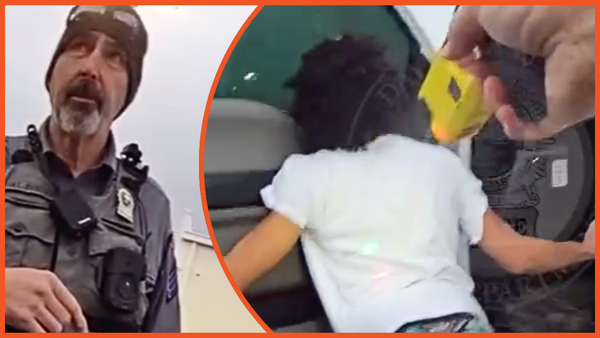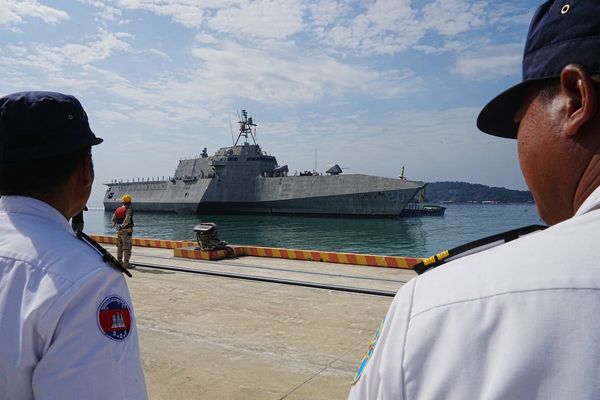The family of an Aboriginal man who died in police custody has welcomed a ban on the use of chokeholds during arrests, but says there are continued cultural issues between First Nations peoples and police.
The name and images of Mr Nixon-McKellar have been published with permission from his family.
Steven Nixon-McKellar, 27, died in October 2021 when he was involved in an altercation with police outside a home in the Toowoomba suburb of Wilsonton.
Police were called to the scene after receiving reports about a stolen vehicle.
A struggle ensued when police officers attempted to arrest Mr Nixon-McKeller.
Mr Nixon-McKellar's family said they believed officers used a chokehold, referred to by the Queensland Police Service as a lateral vascular neck restraint, during the incident, which they believed contributed to his death.
Yesterday, the Queensland Police Service banned the use of the chokehold, effective immediately.
It had been an approved technique of the use of force in high-risk situations for 30 years.
Queensland was the last state and territory to ban it.
Family campaigns for chokehold end
Mr Nixon-McKellar's family had been campaigning for its ban, saying the chokehold was extremely dangerous.
His aunty, Saraeva Mitchell, said it was an emotional day for the family.
"We went out to the cemetery [yesterday] to put some flowers on [his grave] and had a cry for him," she said.
"We're very pleased that the police commissioner has decided to remove it.
"While we couldn't save Steven, we hope this can save other lives so no other family has to go through what we went through."
But they said more needed to be done to restore trust between the police service and Aboriginal people.
"We've been thinking about when police approach or apprehend an Aboriginal person … they should have done a kind of health check," Aunty Lynette said.
She said she also wanted to see all the recommendations of the Royal Commission into Aboriginal Deaths in Custody implemented.
"We are sick and tired of reviews. Just do it for god's sake," she said.
'Cultural awareness needed'
Ms Mitchell said there also needed to be more cultural awareness training for police officers.
"We had no rights whatsoever," she said.
"We wanted to sit with him where he lay [when Steven died] to call his ancestors to guide his way, but we were denied that right, our cultural duty.
"There is a lot of work that has to be done and that'll be something we'll work towards as well."
The Queensland Police Service said it would not provide a comment on the concerns raised by Ms Mitchell, as the case was under consideration by the Coroner.
A spokesperson said the matter was investigated by the Ethical Standards Command, subject to oversight from the Crime and Corruption Commission.
"At the conclusion of that investigation a report was prepared and forwarded to the Officer of the State Coroner for consideration," the spokesperson said.







